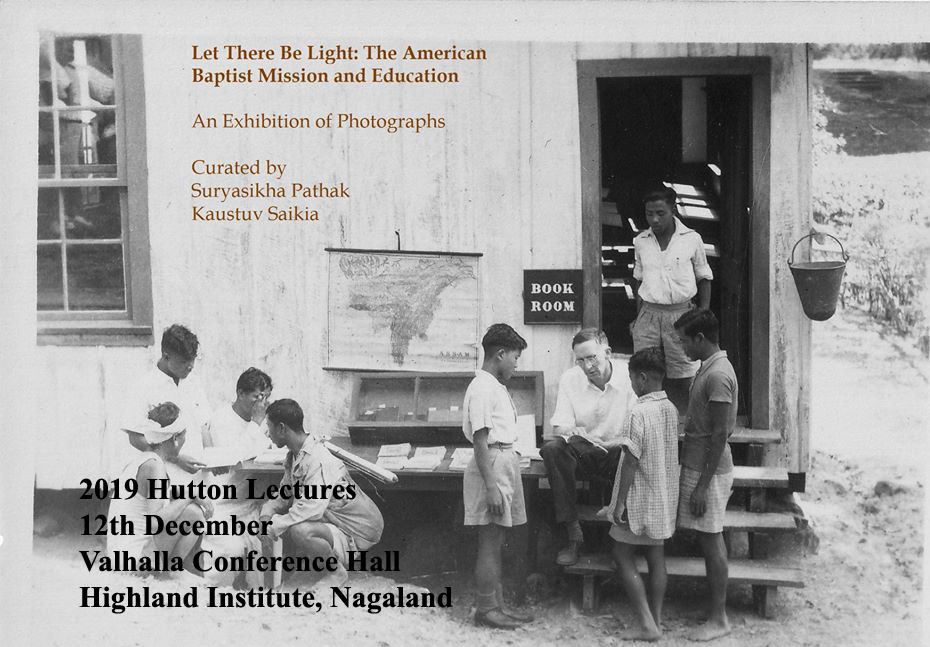The 2019 Hutton Lectures saw another cohort of local and international speakers visit Kohima. The keynote was delivered by our long time friend and collaborator Dharam Singh Teron. He spoke about his work with Michael Heneise as they recorded and documented a famous Karbi funeral dirge. Chief guest Easterine Kire offered another great talk about her recent book on Naga folklore. She spoke critically on the need for Nagas to offer new accounts of their own heritage. Suryasikha Pathak and Kaustuv Saikia curated a photographic exhibition called ‘Let there be Light’ about mid- 20th-century missionary photographs in Assam. In their own words, they wished to move ‘away from written archives to visual ones’ and to ‘’interrogate the concept of knowledge creation and its dissemination’’. Mirza Zulfiqur Rahman spoke on nationalism and rivers in Assam and the wider Himalayan region and drew our attention to the changing nature of river worship. Taking us to a different part of the Himalayas was a talk on Ladakh by Alexander Davis. He spoke on precarity, melt, and new nationalist claims over landscape.
Lydia Walker spoke on the history of the Naga movement and their relations to the United Nations. Aditya Kiran Kakati and Catriona Child discussed the field photography of the pioneering anthropologist of the Zeme Nagas, Ursula Graham Bower and highlighted her unique approach compared to her peers. Another speaker and descedent of a famous British figure, that of Assam Rifles man and amateur ethnologist L. W Shakespear, was Nigel Shakespear. He spoke very reflexively about the diary of his ancestor Connie Shakespear and what it might mean to Naga peoples today. This fascinating archival collection is also the subject of a forthcoming publication by the Highlander Press and we were lucky to see some of the images during a small exhibition at the Institute. This panel explored how Northeast Indian narratives are still connected to global histories even after the end of colonialism.
Margaret Lyndogh took the audience to Meghalaya and to critical folklore studies, where she discussed indigenous relations with the supernatural. Lastly, Edward Moon-Little spoke on James Frazer. Moon-Little’s talk addressed how Frazer used materials from many communities in Northeast India, including the Nagas, to critique Christianity. However, what is now apparent is that these same communities have embraced Christianity while Frazer’s own reputation as an anthropologist and theorist has been greatly reduced. The event ended with a wonderful dinner prepared by in-house Chef Edward Moon-Little and Negi Thokchom.


